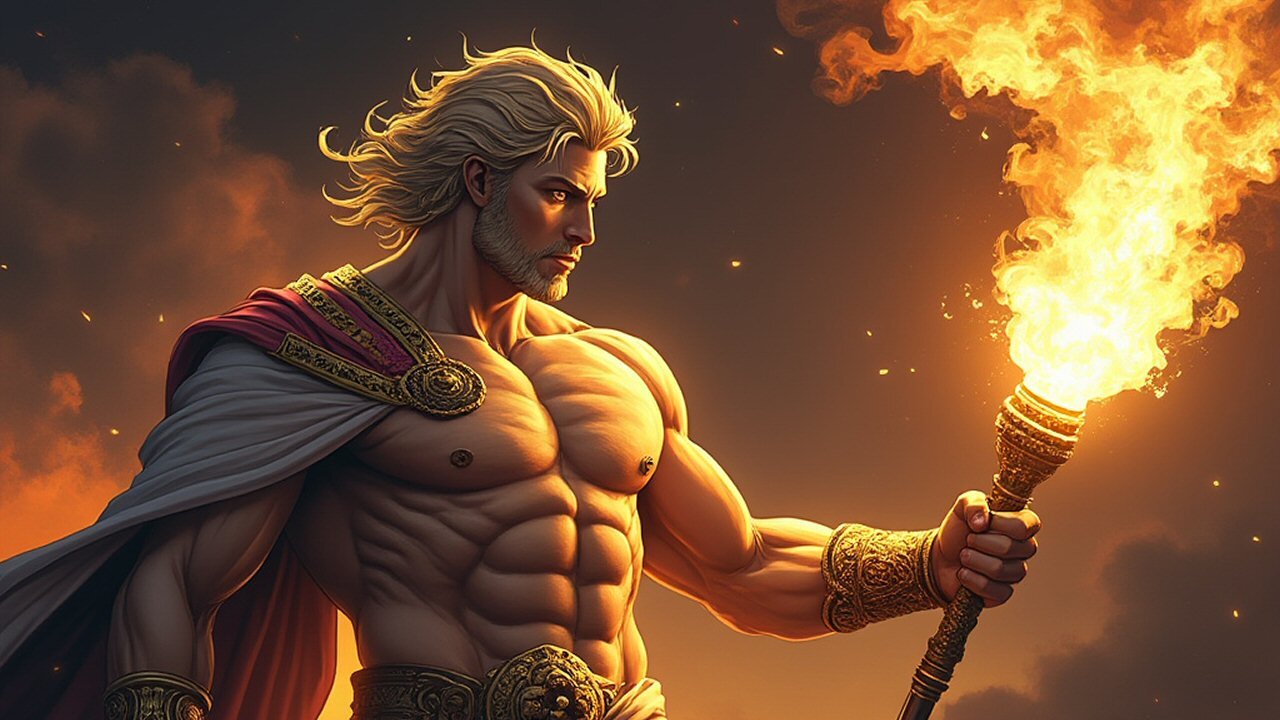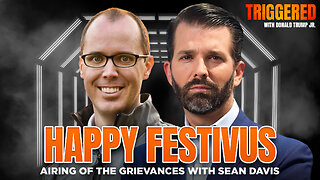Premium Only Content

Which Way Forward for Western Society?
The transition from Judaism, Christianity, and Islam (the Abrahamic faiths), all of which more than 2,000 years of science and academic scholorship has proven to be little more than products of Jewish Supremicist mythology, to a more rational spiritual worldview in Western society involves navigating complex cultural, psychological, and social terrains. Here are several ideas and considerations about how Western society might move forward into the future:
...
Secular Humanism: This philosophy emphasizes human reason, ethics, and justice while rejecting religious dogma. It could provide a moral framework where values such as compassion, integrity, and human rights are upheld without reliance on divine commandments.
...
Philosophical Ethics: Engaging deeply with philosophies that discuss ethics, like Stoicism, Existentialism, or Utilitarianism, which offer ways to think about good and evil, right and wrong outside of religious contexts.
...
Community Building: Secular communities can replicate the social functions of religious congregations, providing support networks, communal activities, and a sense of belonging through clubs, societies, or movements centered around shared interests or humanistic values.
...
Education: Emphasizing critical thinking, science, and philosophy in education can help fill the void left by religious teachings, fostering a culture that values inquiry over dogma.
...
Art and Culture: Literature, art, music, and other cultural expressions can become more central in providing people with meaning, reflecting on the human condition, and exploring the beauty and tragedy of life.
...
Psychology and Self-Help: Therapies that focus on personal growth, mindfulness, and existential understanding (like existential or cognitive-behavioral therapy) can aid individuals in finding personal meaning in their life.
...
Civic Responsibility: Encouraging active citizenship where Republicanism, law, and human rights are seen as foundational, replacing or complementing the role religion played in civic life.
...
Legal Systems: Strengthening secular legal systems that evolve with human understanding, ensuring they reflect ethical standards based on universal human rights rather than divine law.
...
Science as a Candle: Promoting science not just for its practical benefits but as a way of understanding the universe, which can inspire awe and wonder akin to religious experience.
...
Rational Debate: Cultivating a public sphere where policies and ethics are debated based on evidence, reason, and the common good.
...
Non-Theistic Spirituality: Exploring spiritual practices that don't require belief in traditional deities, like secular Buddhism, or forms of pantheism where 'god' might be synonymous with the universe or nature itself, which is the position I hold.
...
Transcendent Experiences: Seeking transcendent experiences through meditation, nature, or even through technology and virtual realities that offer new ways to experience 'beyond the self' moments.
...
To summarize, I believe that the way forward for Western society, without reliance on traditional religious beliefs, involves a multifaceted approach where science, art, philosophy, education, and new forms of community and spirituality interplay to meet human needs for meaning, connection, and moral guidance. The challenge lies in ensuring these alternatives foster resilience, and a sense of purpose that traditional religions provided for centuries. The key is not to discard the values that religion has instilled, but to translate them into a secular context that continues to promote human flourishing well into the future.
-
 8:46
8:46
FreedomMovement
2 months agoDoD Directive 5240.01 Threatens Americans
1.13K1 -
 2:05:07
2:05:07
Darkhorse Podcast
7 hours agoWhy Trump Wants Greenland: The 257th Evolutionary Lens with Bret Weinstein and Heather Heying
74K169 -
 LIVE
LIVE
Right Side Broadcasting Network
7 hours ago🎅 LIVE: Tracking Santa on Christmas Eve 2024 NORAD Santa Tracker 🎅
1,877 watching -
 2:48
2:48
Steven Crowder
10 hours agoCROWDER CLASSICS: What’s This? | Nightmare Before Kwanzaa (Nightmare Before Christmas Parody)
174K12 -
 LIVE
LIVE
LFA TV
11 hours agoLFA TV CHRISTMAS EVE REPLAY
851 watching -
![ROSEANNE BARR - Her Journey, TRUMP, and the MAGA GOLDEN AGE! [INTERVIEW]](https://1a-1791.com/video/s8/1/M/m/B/2/MmB2v.0kob.1-small-ROSEANNE-BARR-Her-Journey-T.jpg) 51:35
51:35
Dr Steve Turley
1 day ago $11.75 earnedROSEANNE BARR - Her Journey, TRUMP, and the MAGA GOLDEN AGE! [INTERVIEW]
28.3K47 -
 57:38
57:38
The Tom Renz Show
4 hours agoMerry Christmas - The Tom Renz Show Christmas
46.2K9 -
 2:59:10
2:59:10
Wendy Bell Radio
15 hours agoThe Bridge Too Far
136K194 -
 1:03:45
1:03:45
Donald Trump Jr.
1 day agoHappy Festivus: Airing Our Grievances and Stopping The Swamp w/Sean Davis | TRIGGERED Ep.201
404K528 -
 1:30:30
1:30:30
Game On!
18 hours ago $7.48 earnedTop 5 things you need to know for Sports Christmas!
59.3K4